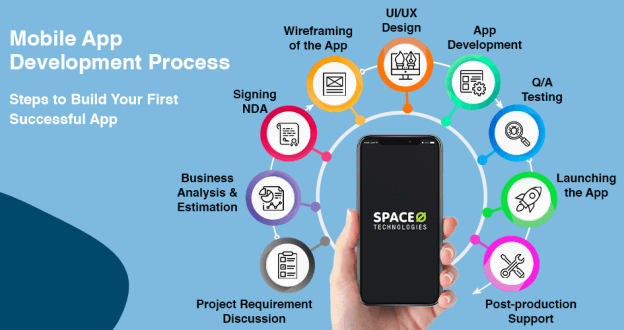
Mobile apps have become an integral part of our lives, offering convenience and accessibility at our fingertips. Whether you have a groundbreaking idea or want to enhance your business’s digital presence, building your first mobile app can be an exciting and rewarding journey. This article will guide you through the process of mobile app development, from ideation to deployment, providing crucial insights and expert tips for success.
Understanding the Target Audience
Before diving into development, it is essential to understand your target audience’s needs, preferences, and pain points. Conduct thorough market research to identify your potential users’ demographic details, app usage patterns, and desired features. This insight will shape your app’s design, functionality, and overall user experience, ensuring it caters to their specific requirements.
Defining App Functionalities and Features
Next, clearly define the functionalities and features your app will offer. Whether it’s e-commerce, social networking, or productivity tools, a well-defined scope is crucial for efficient development. Create a comprehensive list of desired features and prioritize them based on their importance and complexity. This step will serve as a roadmap for your developers and streamline the development process.
Choosing the Right Development Approach
When it comes to mobile app development, you have two primary options: native app development or cross-platform app development. Native apps are built specifically for one platform (iOS or Android) utilizing platform-specific languages like Swift or Java, providing superior performance and native user experience. Cross-platform apps, on the other hand, allow code sharing across multiple platforms, reducing development time and cost. Consider the pros and cons of each approach before making a decision based on your app’s requirements and target audience.
Designing the User Interface and Experience
The visual appeal and usability of your app play a crucial role in engaging and retaining users. Collaborate with experienced UI/UX designers who can create a captivating and intuitive interface. Focus on minimalism, seamless navigation, and a consistent design language. Conduct usability tests with real users to gain insights and make necessary improvements. Remember, a positive user experience will greatly impact your app’s success.
Development and Testing
Once the design is finalized, the development process begins. Employ skilled developers who are proficient in the selected development approach and platform-specific languages. Maintain a robust code structure, adhere to coding best practices, and implement scalable architecture. Regularly test your app throughout the development phase using various testing methods such as unit testing, user acceptance testing, and performance testing. Identify and resolve any bugs or issues promptly to ensure a smooth user experience.
App Store Deployment and Marketing
With your app ready, it’s time to submit it to the relevant app stores. Follow the specific guidelines provided by Apple’s App Store and Google Play Store to ensure a seamless submission process. Craft an engaging app description, captivating screenshots, and promotional materials to maximize user downloads. Implement effective app store optimization (ASO) techniques to improve your app’s visibility and discoverability among millions of other apps. Develop a comprehensive marketing strategy including social media engagement, influencer marketing, and paid advertisements to create awareness and drive user engagement.
Maintaining and Updating the App
Once your app is live, continuous monitoring and periodic updates are crucial. Regularly analyze user feedback, ratings, and reviews, and integrate necessary improvements. Stay updated with the latest mobile OS updates and latest features to ensure compatibility and enhance user experience. Continuously invest in your app’s maintenance and improvement to keep users engaged and satisfied, fostering long-term app success.
Conclusion
Building your first mobile app can be a game-changing endeavor, empowering you to tap into the vast potential of the digital world. By understanding your target audience, defining app functionalities, choosing the right development approach, designing an appealing interface, and following a meticulous deployment and marketing strategy, your mobile app can stand out in the competitive tech market. Embrace the challenge, collaborate with skilled professionals, and craft an app that not only meets user expectations but exceeds them.
© YourCompany 2022. All rights reserved.

